Your Health Unlocked Episodes
052: Health Care Discrimination – Your Rights and System Gaps
September 26, 2024
---
Your Health Unlocked Episodes
Publication Date: August 24, 2023
By: NWHN Staff

Every day in the United States, Black families are investigated by the Child Welfare System and forcibly separated at rates much higher than their white counterparts. This system, known to most as Child Protective Services (CPS) and some activists as the Family Regulation System, has been around in some form for over 100 years. Decades of data, research, and lived experiences have revealed disparities and discrimination within this system and have shown that separating families can often cause life-long harm to all involved. In today’s episode of the Your Health Unlocked Podcast, we sit down with three Family Regulation Warriors, Ana, Alexis, and NWHN Board Member Yamini, to discuss this issue and what can be done about it.
A clinical professor and assistant director of Inpatient Obstetrics at UCSF, Ana has helped countless mothers provide their children with a healthy start through her care as a certified nurse-midwife. She hopes her tireless advocacy at the local, state, and national levels will ensure health equity for these families, now and for the rest of their lives.
A significant focus of Ana’s work is examining structural racism’s role in health care. As co-director of the Anti-Racism, Equity, Inclusion, and Structural Change initiative within UCSF’s Department of Obstetrics, Gynecology & Reproductive Services, Ana leads workshops and presentations educating UCSF physicians, nurse-midwives, and staff about structural racism’s adverse effects to prevent instances of bias and discrimination when treating underrepresented individuals.
In addition to Ana’s work at UCSF, she provides prenatal care at Mission Neighborhood Health Center, which serves nearly 13,000 low-income patients annually in four San Francisco Bay Area locations.
Ana entered UCSF with a degree and background in political science. The education and training she received at the UCSF School of Nursing gave her the knowledge to apply her previous experience to the new domain of health policy. She advocates for health equity through her affiliations with the California Nurse-Midwives Association’s Health Policy, the Reproductive Justice and Anti-Racism Committees, as well as UCSF’s Bixby Center for Global Reproductive Health.
Alexis Cobbins is the former executive director of the UCSF California Preterm Birth Initiative (PTBI), a group that conducts and funds research at the University of California San Francisco.
Before joining PTBI, Alexis spent over a decade working for and with Black women and their families through her roles at Mayor Ed Lee’s signature anti-poverty program “Project 500” (The San Francisco Human Services Agency) and the Black Infant Health program at the San Francisco Department of Public Health.
With a Master of Social Work from California State University, East Bay, Alexis is deeply experienced in this field, providing culturally relevant and responsive services, trauma-informed care/systems, grief and loss therapy related to community violence, reflective practice, and anti-racism work. She has also served as a postpartum doula.
After experiencing a preterm birth with her second child, Alexis’ interest in building her career around reducing the burden of prematurity was ignited. Alexis’s personal and professional experiences drive her passion to improve birth outcomes for Black women and other women of color.
Yamini is a convener, strategist, and facilitator with a background that ranges from youth development to women’s health, reproductive rights advocacy, and racial & gender justice.
She led the POWER Health Initiative at HIVE, a hub for advancing reproductive and sexual wellness for individuals, families, and communities affected by HIV in San Francisco and beyond.
She is passionate about supporting the resiliency of women and girls locally and worldwide. Yamini has a B.A. in ethnic studies from UC Berkeley, is interested in public health, and spends her time contemplating a different world.
Yamini serves on the National Women’s Health Network (NWHN) Board of Directors.
Some Terms and Linked Definitions:
References Mentioned:

